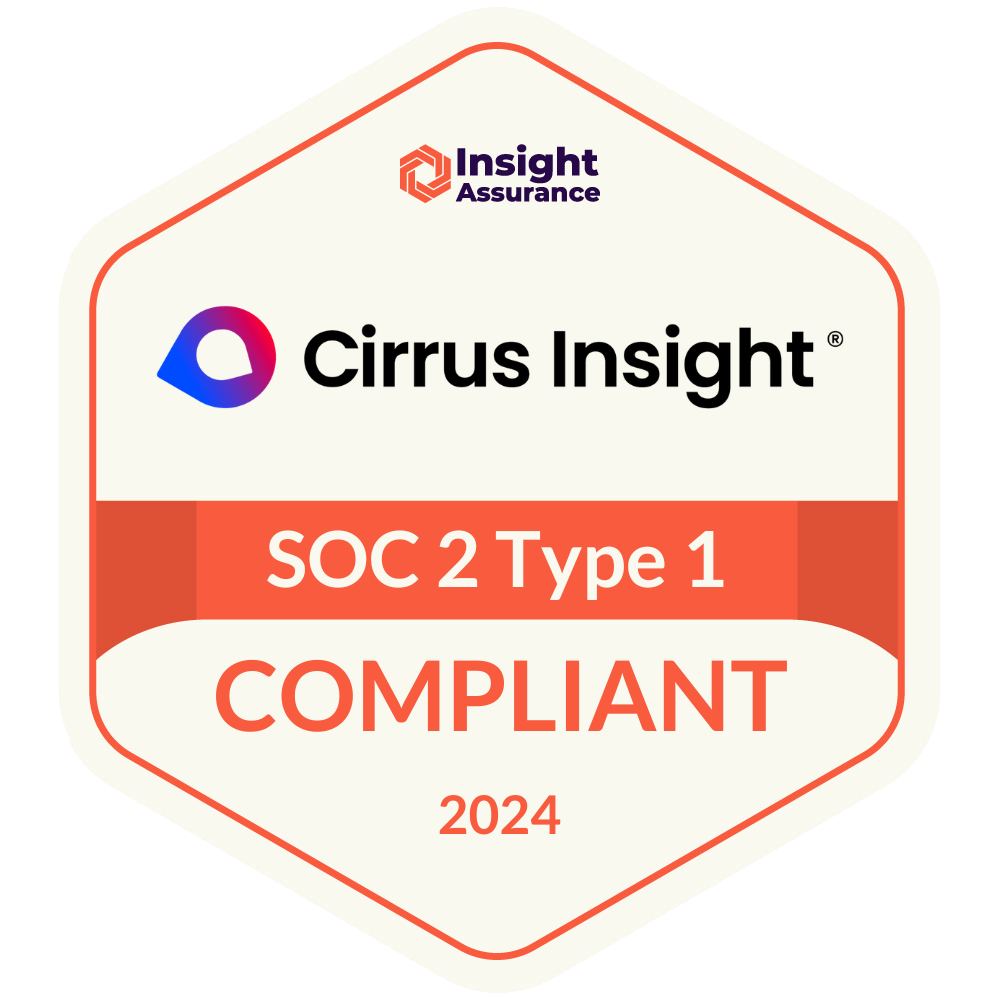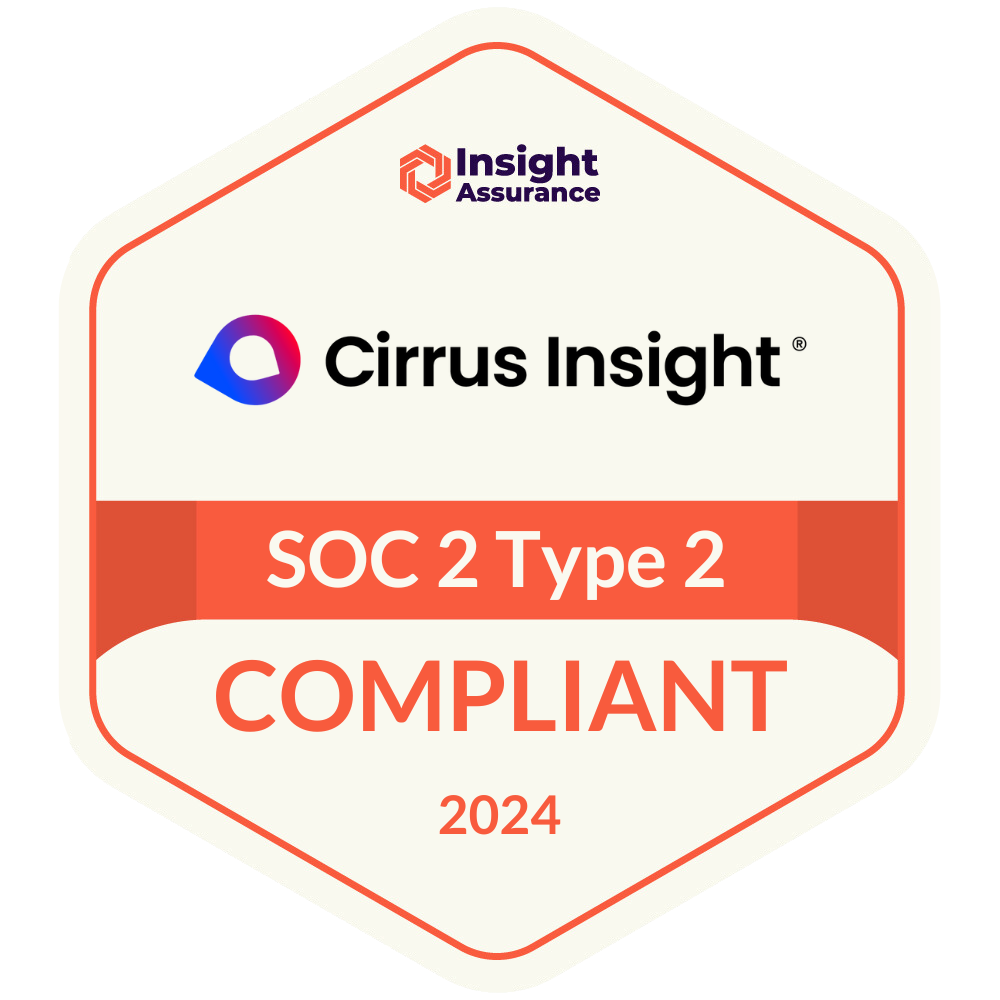The rapid evolution of Artificial Intelligence (AI) is reshaping the B2B sales landscape. Top-performing organizations are 1.9 times more likely to use AI, with the technology delivering a 40% productivity boost, shortening sales cycles by 30%, and increasing close rates by 20%. For sales professionals and operations teams, the pressing question is not whether to adopt AI but how to integrate it effectively into existing workflows.
To answer that question, the Unlocking AI Value for B2B Sales webinar, hosted by Cirrus Insight and Green Irony, provided a roadmap for leveraging AI to optimize sales processes and drive growth. The expert speakers shared actionable insights, real-world examples, and strategies to help sales teams harness AI’s full potential. This article explores the key takeaways from the webinar, offering practical advice for transforming sales efforts through AI.
1. Understanding the Benefits of AI for B2B Sales
The webinar assumed attendees had some familiarity with AI’s potential for sales processes and focused on practical applications. Key benefits of AI for B2B sales include:
- Boosted Productivity: By automating repetitive tasks such as data entry, email follow-ups, and prospect research, AI allows sales teams to focus on higher-value activities like engaging with prospects and closing deals.
- Improved Lead Qualification: AI can more accurately identify and qualify leads, helping sales teams prioritize high-potential opportunities.
- Operational Efficiency: AI integrates across multiple sales functions—such as content creation, pipeline management, and customer relationship management—leading to smoother, more efficient workflows.
Ultimately, AI enables sales teams to maximize their efforts, reducing time spent on mundane tasks and increasing the time available for strategic sales activities
2. Content Creation: Tailored Messaging at Scale
One of the standout applications of AI is content creation. Tools like ChatGPT can help sales teams generate personalized content quickly, improving both efficiency and engagement. AI can:
- Create personalized outreach emails that directly address a prospect’s needs and pain points.
- Generate proposals and presentations based on available data, ensuring each document is relevant and tailored to the prospect.
- Enhance content consistency by ensuring all messaging aligns with the company’s voice and objectives.
By automating content creation, AI saves valuable time and enables sales professionals to deliver high-quality, tailored communications at scale, improving response rates and engagement.
3. Sales Enablement and Automation: Optimizing Efficiency
AI is also transforming sales enablement by automating routine tasks and enabling sales teams to focus on high-impact activities. Some common use cases for AI in sales enablement include:
- Automated Email Responses: AI can handle common queries, follow-ups, and scheduling requests, freeing up time for salespeople to engage in more meaningful interactions.
- Data Entry and CRM Management: automatically updates CRM records and categorizes leads, eliminating the need for manual data entry.
- Pre-Meeting Research: AI provides detailed summaries of prospects, including their pain points and key decision-makers, so salespeople can enter meetings well-prepared.
These automations significantly reduce the time spent on mundane tasks, enabling sales teams to operate more efficiently and close more deals.
4. Utilizing Data and Forecasting: Improving Decision-Making
AI’s ability to leverage diverse data sources provides deep insights that drive better decision-making. Key uses of AI in data-driven sales operations include:
- Sales Forecasting: AI models analyze historical data to predict future trends and outcomes, helping sales teams adjust their strategies proactively.
- Pipeline Management: AI tracks leads and opportunities throughout the funnel, providing real-time insights into deal status and helping sales teams address risks and bottlenecks before they derail the sales cycle.
- Data-Driven Recommendations: AI analyzes patterns from past interactions to offer actionable suggestions for closing deals more effectively.
AI's real-time analysis of vast data sources enables sales teams to make faster, more informed decisions, improving outcomes and reducing reliance on guesswork.
Watch Our AI Strategy Webinar
Dive deeper into the strategies and insights by watching the webinar, where experts provide more in-depth guidance on leveraging AI to transform your B2B sales processes.
5. Optimizing the Sales Funnel: From Prospecting to Closing
AI can optimize every stage of the sales funnel, from lead qualification to closing. Key benefits include:
- Improved Lead Qualification: AI can automatically assess leads based on predefined criteria, ensuring sales teams focus on the most promising opportunities.
- Content Delivery: AI recommends the most relevant content at each stage of the buying journey, such as case studies, product demos, or whitepapers.
- Increased Conversion Rates: By providing real-time insights and automating routine tasks, AI helps sales teams advance deals faster and with higher conversion rates.
AI also helps identify potential objections early in the process, allowing sales teams to address concerns proactively and close deals more effectively.
6. Post-Sale Optimization: Ensuring a Smooth Client Experience
AI continues to add value beyond the sale by optimizing post-sale activities. AI can:
- Enhance Client Onboarding: AI tools assist in the onboarding process, ensuring clients receive timely, personalized support and training materials.
- Predict Customer Needs: By analyzing client data, AI identifies potential issues or opportunities for upselling, allowing sales teams to address them proactively.
- Improve Customer Experience: AI tracks client satisfaction and provides insights into how to improve the product or service offering, leading to stronger customer relationships.
AI-powered post-sale support drives client retention and opens the door to upselling opportunities, creating long-term value beyond the initial deal.
7. Selecting the Right AI Tool: Key Considerations
The webinar stressed the importance of selecting the right AI tool based on specific sales challenges. When choosing an AI solution, consider:
- Clarity of Purpose: Identify the specific sales problem you’re solving—whether it’s lead qualification, content creation, or sales forecasting—and choose a tool that addresses that need.
- Data Integration: Ensure the AI tool integrates seamlessly with your existing systems (e.g., CRM, ERP) and relies on accurate data for optimal performance.
- Ease of Use: Opt for tools that are user-friendly and easy to integrate without requiring extensive training or technical expertise.
Market leaders like Salesforce, ZoomInfo, and HubSpot offer robust, multi-functional AI tools, while niche players may provide specialized, cost-effective solutions.
8. Executive Buy-In: Building the Case for AI
To secure approval for AI adoption, sales leaders must build a compelling business case by:
- Demonstrating ROI: Show how AI will drive revenue growth, reduce costs, or improve sales productivity.
- Aligning with Business Goals: Ensure AI initiatives support long-term company objectives, such as increasing market share or improving customer satisfaction.
- Anticipating Concerns: Be prepared to address questions about costs, implementation challenges, and expected benefits.
Executive buy-in is crucial for securing resources and support for successful AI adoption.
9. Phased Rollout and Adoption Strategy
Successful AI adoption requires a phased approach. Key steps in the rollout process include:
- Pilot Programs: Start by testing AI tools on smaller teams or specific use cases to measure impact before scaling them across the organization.
- Stakeholder Engagement: Involve key users early in the process to gather feedback and ensure the tool fits their needs.
- Just-in-Time Training: Provide training just before the rollout to ensure sales teams are ready to use the tools effectively.
A phased rollout helps reduce disruption and ensures smoother integration into existing workflows.
10. Measuring Success and Continuous Improvement
To measure the success of AI initiatives, track key performance indicators (KPIs) such as:
- Increased Productivity: Measure the time saved through automation and how that translates into higher sales output.
- Reduced Sales Cycles: Track how AI shortens the time from lead generation to deal closure.
- Higher Close Rates: Assess the impact of AI-driven insights on conversion rates and revenue growth.
AI is an evolving tool, so ongoing evaluation is necessary to ensure it continues to drive value and adapts to new challenges.
Conclusion
AI is ready to transform B2B sales by automating mundane tasks, providing actionable insights, and optimizing every stage of the sales funnel. However, successful AI adoption requires careful planning, executive buy-in, and a clear strategy to integrate AI tools into existing workflows.
B2B sales professionals and operations teams must embrace AI not as a replacement for human expertise but as a tool to enhance their efforts. With the right tools and approach, AI can significantly improve productivity, shorten sales cycles, and increase close rates—ultimately driving revenue growth and improving customer satisfaction. By following the strategic roadmap outlined in the webinar, sales teams can unlock AI’s full potential and gain a competitive edge in an increasingly digital marketplace.
The webinar "Unlocking AI Value for B2B Sales" featured expert insights from Mike Baldwin, VP of Product & Engineering at Cirrus Insight, and Kevin McAbee, Field CTO at Green Irony. To gain the full depth of their expertise and actionable advice, be sure to watch the webinar on-demand.

.png?width=1268&height=1772&name=Sidebar-C%20(1).png)






